In recent years, solar panels have become a popular alternative energy source for homes and businesses in Vancouver Canada. However, as with any new technology like solar power, people have questions and concerns. One common question that arises is, “Do solar panels make noise?” This is a valid concern, especially for those who may be considering installing solar panels on their property.
The short answer is yes; it is possible for solar panels to produce noise. In this article, we will explore the topic of solar panel noise and answer the question, “Do solar panels make noise?”
By the end of this article, you will have a better understanding of the potential noise levels associated with solar panel installations.
Common Types of Solar Panel Noise

Inverter Noise
The inverter is a critical component of the domestic solar panels’ system as it converts the DC generated by the solar panels into AC power. Homes or businesses use this AC power for their energy needs. However, it can produce noise due to the sound output of its electrical components.
Inverters usually produce a humming sound that is not noticeable during the day but you can hear that at night in a quiet environment.
Creaking Noise
Solar panel manufacturers design modern solar panels to withstand various weather conditions, such as direct sunlight and windy conditions. However, they can make creaking sounds in strong winds, especially if you do not mount them securely.
You can hear the creaking noises when panels expand and contract due to changes in temperature.
Hitting Noises
Exposure to high winds can cause solar panels to make hitting noises. This occurs when the panels hit each other or the mounting rack, creating a rattling sound that can be disturbing.
Shaking and Blowing
Strong winds can shake solar panels, causing them to produce a vibrating sound audible from a distance..
Designers make solar panels to withstand high winds. However, incorrect installation or a loose mounting rack can cause them to produce sound.
Rattling Sounds
Solar panels don’t cause this sound. Instead, the cooling fan in the inverter may produce rattling sounds.
The fan is responsible for cooling the inverter to prevent overheating. However, if it is not working correctly, it can produce a rattling sound.
Running or Falling Sounds
Incorrectly mounted solar panels can create a running or falling sound. This is especially true for flat roofs or other non-standard installations, where the panels can slide or move.
Wind Noise
When wind passes over the solar panels, you may hear noises in the form of a whistling sound. The natural gap between the panels and the mounting rack can cause wind noise.
Ways to Control Solar Panel Noise
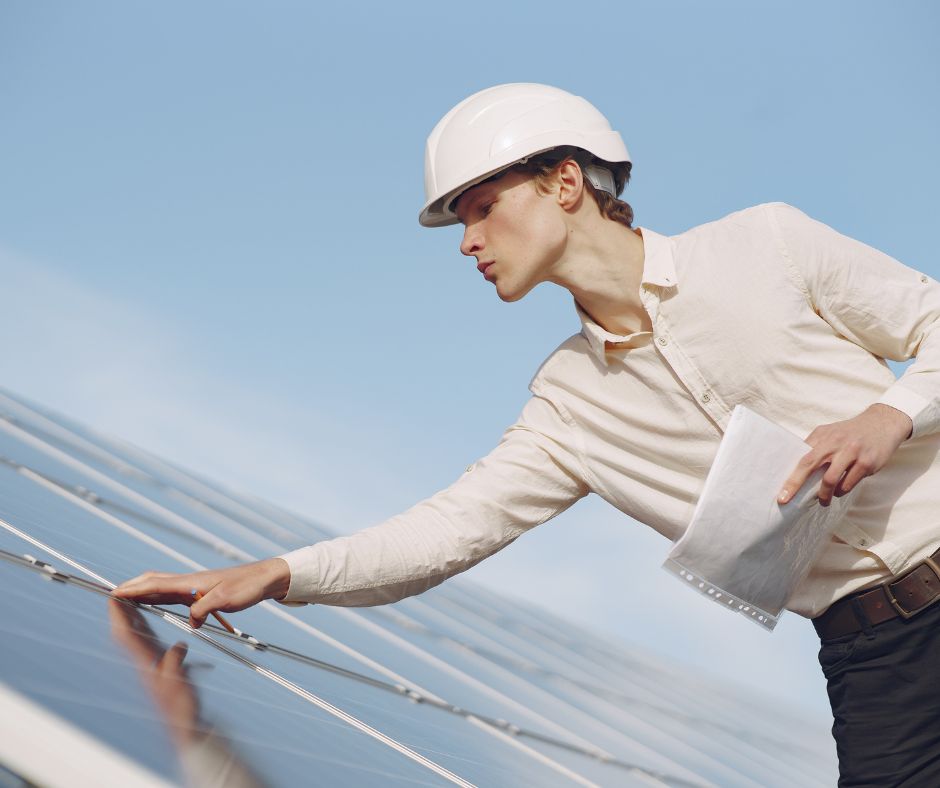
Solar panels’ noise can be a nuisance, especially if you live close to solar farms or have installed solar panels on your property. Here are some ways to control solar panel noise:
- Install Noise Barriers: You can install barriers made of different materials, such as wood, concrete, or metal, around the solar panels’ work area to reduce sound.
- Proper Installation: Correctly installing solar panels, including ensuring a secure mounting rack and proper spacing of the panels, reduces noise.
- Use String Inverters: Compared to other types of inverters, these inverters are quieter. They also have fewer sound-producing components.
- Check for Loose Cabling: Loose cabling can cause a buzzing or tonal sound. Ensure that you correctly secure all cables.
- Use Rubber Pads: Rubber pads can be installed between the solar panels and the mounting rack to reduce noise.
Does Solar Panel Inverter Make Noise at Night?
A solar panel Inverter produces a humming sound that is not noticeable during the day but can be heard at night as it may become noise-generating equipment in a quiet environment.
This is because the electrical line frequency is quieter at night, making the noise more noticeable.
However, this is not a cause for concern, as the sound is generally speaking, not loud enough to cause noise pollution.
Most Common Form of Noise from a Solar Panel Inverter
The most common form of noise from a solar inverter is the buzzing sound it produces. This buzzing sound is generated by the electrical cycle that occurs within the inverter as it converts DC power from the solar panels into AC power that can be used in homes and businesses.
The frequency of this sound can vary depending on the type of inverter used, but it is generally a tonal sound that can be heard both day and night.
How to Control Solar Panel Inverters Noise
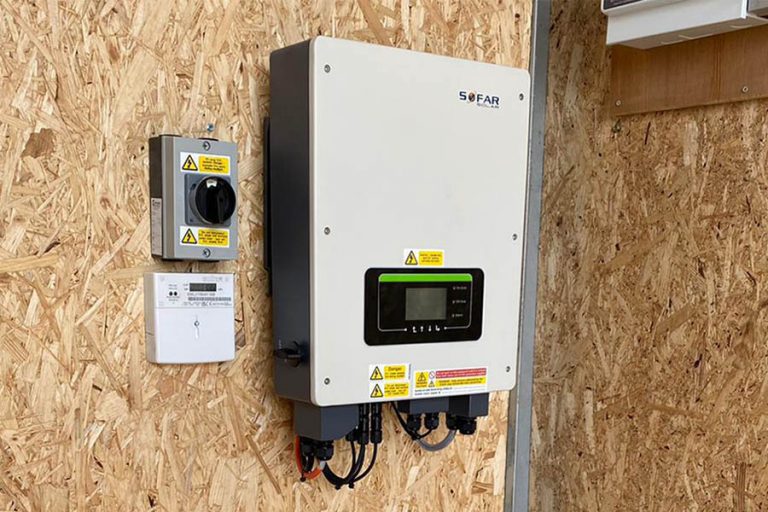
To control the buzzing sound produced by solar panel inverters, it is important to ensure that they are installed correctly and in a location where the noise will not be heard by occupants of the home or building.
Additionally, choosing high-quality inverters that are designed to be quiet can help to reduce noise levels. For example, string inverters are generally quieter than microinverters and central inverters.
Another way to control inverter noise is to use noise barriers, such as walls or fences, to block the sound.
These barriers can help to absorb or deflect the sound waves, reducing the amount of noise that can be heard.
In addition, installing sound-absorbing materials inside the inverter housing, such as acoustic foam, can help to reduce noise levels.
Possible Causes of Nighttime Noise in the Solar Panel System
There are several possible causes of nighttime noise in solar panel systems. One common cause is the forced air ventilation system that some solar inverters use to cool down. The cooling fan can produce a humming noise that can be heard at night.
In some cases, the inverter may be located near a bedroom or other quiet area of the home, making the noise more noticeable.
Another possible cause of nighttime noise in the solar panel system is the sound produced by electrical equipment that is connected to the solar panel mechanism, such as battery chargers or backup generators.
These devices can create noise pollution that can be heard both day and night. In addition, loose cabling or incorrect installation of the solar panel mechanism can cause the panels to rattle or shake, producing a rattling sound that can be heard at night.
To address these issues, it is important to ensure that the solar panel mechanism is installed correctly and that all electrical equipment is operating properly.
Installing the inverter in a location such as a garage or outdoor area where the noise will not be heard at night can help to reduce noise levels.
Additionally, using sound-absorbing materials or vibration-dampening materials, such as rubber pads, can help to reduce noise levels and prevent rattling sounds.
Dealing With a Wind Panel’s Loose Racking Noise
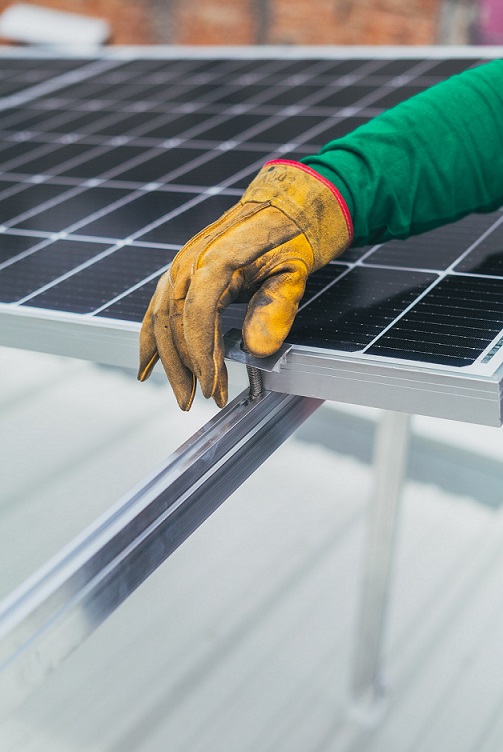
Loose racking noise is a common problem with solar panels while generating electrical energy, particularly in areas with high winds.
If the mounting racks are loose or damaged, the panels may shake and vibrate, producing a rattling noise that you can hear both day and night.
To deal with loose racking noise, you must install the mounting racks correctly and securely.
Additionally, using rubber pads or other sound-absorbing materials between the panels and their mounting racks can help to dampen vibrations and reduce noise levels.
Regular maintenance and inspection of the mounting racks can also help to identify and address any loose or damaged components before they can cause noise issues.
Do Solar Farms Make Noise?
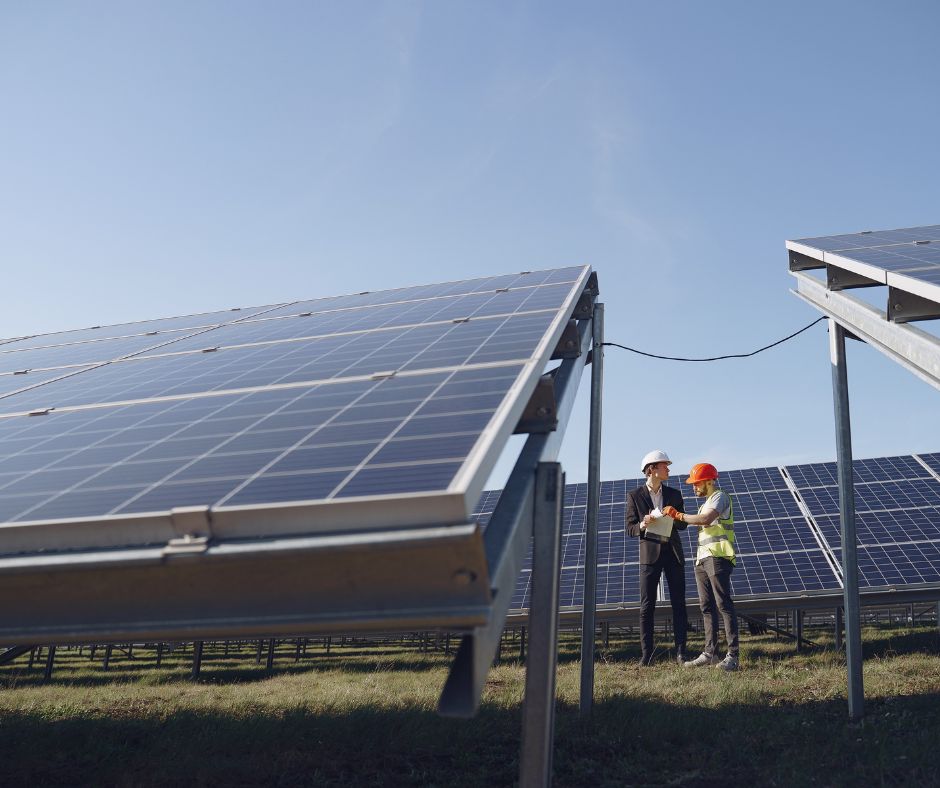
The short answer is that they can, but generally speaking, the noise produced by a solar farm is minimal and not a cause for concern.
The cooling systems used to regulate the temperature of the solar panels are the primary source of noise from a solar farm.
These cooling systems typically consist of fans or other similar devices that circulate air around the panels to keep them from overheating.
In some cases, these fans can produce a low humming sound that may be audible if you are near the solar farm.
Final Thoughts
In conclusion, a solar panel installation may have some potential sources of noise, such as inverter noise, creaking noises, and shaking and blowing noises. However, the solar panels themselves do not produce any noise. The good news is that proper installation and maintenance can often control these noises. Noise barriers, proper installation of the panels, and regular maintenance of the equipment are some ways to control the noise.
When it comes to solar farms, the noise produced is typically minimal and not a cause for concern. Although cooling systems and inverters may produce some noise, manufacturers design them to minimize any potential noise pollution. They also manage them well to ensure that any noise generated remains within acceptable levels.
At the end of the day, the benefits of solar power far outweigh any potential noise concerns. Solar power is a clean and renewable source of energy that can help reduce our reliance on fossil fuels and combat climate change. Installing solar panels can help create a more sustainable future for ourselves and future generations. Alternatively, supporting solar farms is another way to contribute towards sustainable energy production. So whether you’re looking to power your home with solar lights or considering a larger solar panel installation or solar farm, don’t let concerns about noise hold you back – the benefits are well worth it.

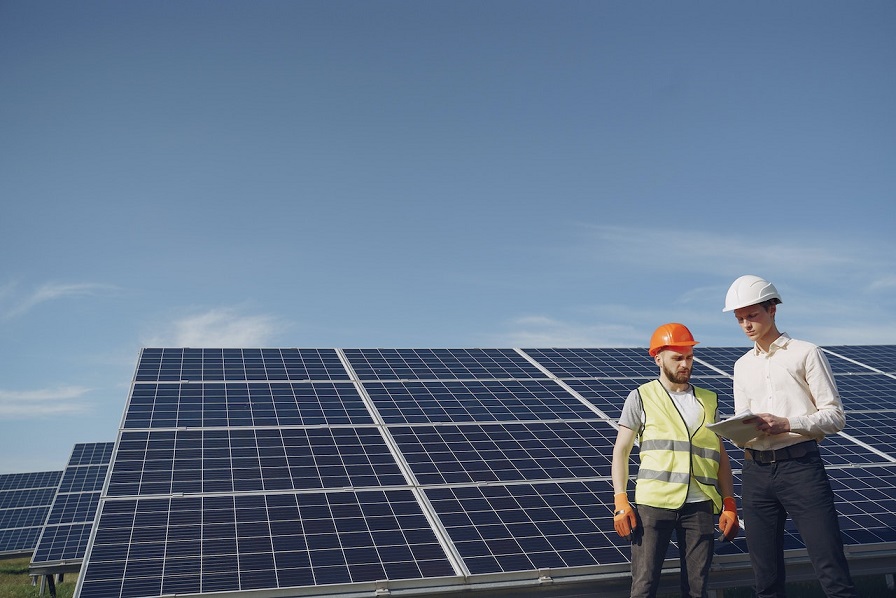
Leave a Reply